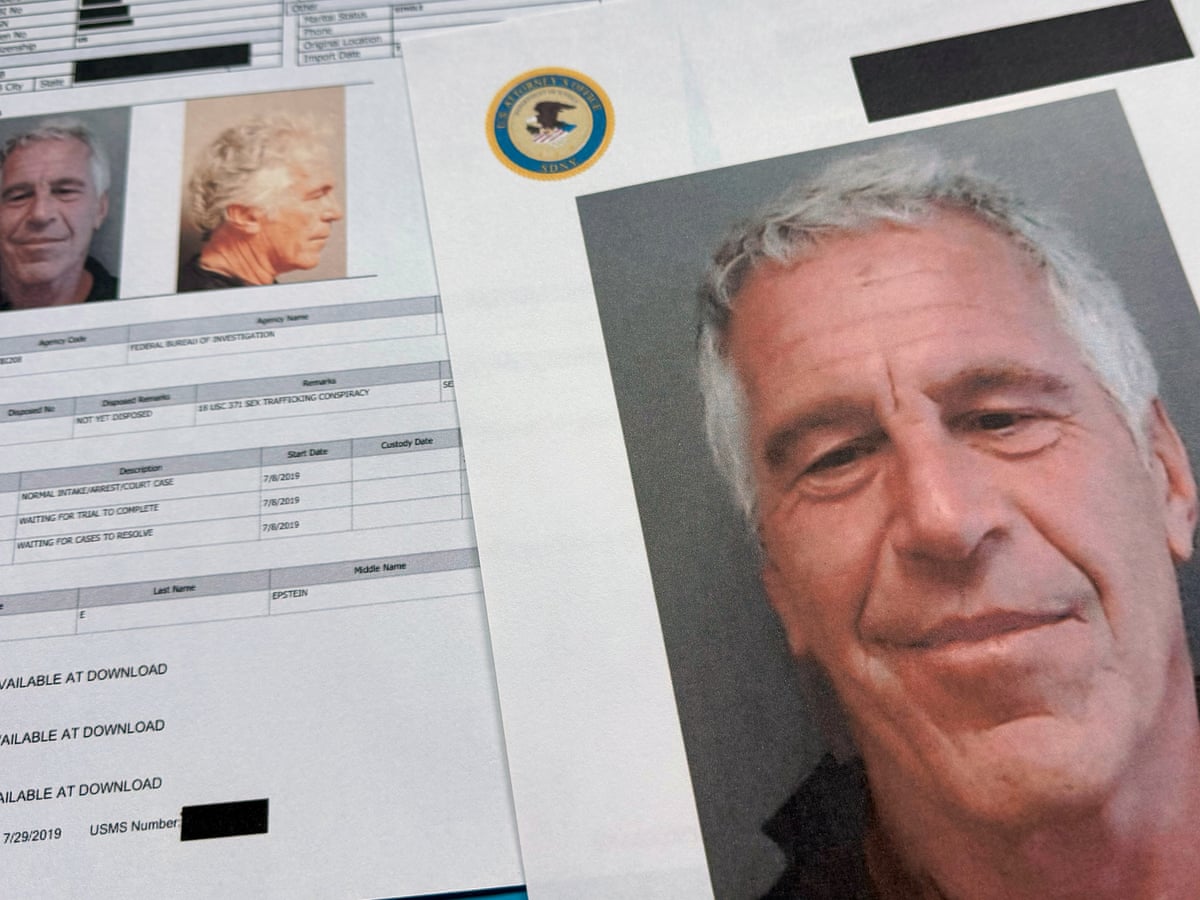
Kamala Harris Still Facing Criticism for Trump’s Second Term Stemming From Her Defeat
Former Vice President Kamala Harris, months after her loss in the 2024 presidential election, remains a central target of blame for many Democrats and political analysts grappling with the reality of Donald Trump’s second term. While Harris herself has begun the process of public reflection, often placing blame on a truncated campaign and internal Democratic dynamics, the prevailing criticism she faces is that her defeat was the critical failure that ushered Trump back into the White House.

The Burden of Blame
In the immediate aftermath of the election, the Democratic Party began a familiar and painful cycle of introspection. For a party deeply concerned with what they describe as the existential threat of a second Trump administration, the focus naturally turns to the individual who failed to stop it.
The core of the critique is twofold:
- Inherited Headwinds: Harris took the presidential nomination after President Joe Biden’s late withdrawal, inheriting a challenging political and economic climate marked by persistent voter anxieties over inflation and immigration. Critics argue that she failed to effectively distance herself from the unpopular aspects of the Biden administration while simultaneously not offering a sufficiently compelling new vision.
- The Compressed Campaign: The limited 107-day window for Harris to pivot from Vice President to the nation’s chief executive candidate is frequently cited as an insurmountable obstacle. However, this is increasingly viewed not as a simple excuse, but as a failure of rapid political execution. Analysts point to a slow start in defining her message, a lack of consistent media engagement, and critical missteps during the campaign that the Trump machine effectively capitalized on.

Reflecting on Strategic Errors
Harris has attempted to address this criticism, notably in her recently released memoir, but her explanations have themselves drawn more scrutiny from within her own party.
- Loyalty vs. Independence: She has detailed the intense pressure she felt to maintain absolute loyalty to the outgoing Biden administration, even when it hurt her ability to forge her own identity. This is seen by critics as a fundamental strategic error—a reluctance to publicly articulate what she would do differently from her predecessor, which left her vulnerable to the charge of being too tied to an unpopular status quo.
- Defining the Threat: While Harris made the defense of democracy and reproductive rights the cornerstone of her closing argument, some post-election analysis suggests these themes did not sufficiently resonate with the swing voters most concerned about their economic well-being. The narrative that she failed to connect with working-class voters on pocketbook issues is a persistent element of the ongoing criticism.

The Weight of Trump’s Agenda
Ultimately, the intensity of the criticism is fueled by the actions and policies of the sitting administration. Every major move by President Trump—whether it involves judicial appointments, shifts in foreign policy, or domestic regulatory changes—serves as a fresh reminder to Democrats of what was lost.
For many within the party and the broader political resistance, the feeling of “what if” remains potent. The defeat of the highest-ranking woman in U.S. history and the first Black and South Asian Vice President is viewed not just as an electoral loss, but as the failure to prevent an outcome they believe is actively dismantling decades of progress.
As the Democratic Party looks ahead to the next election cycle, Kamala Harris will have to contend not only with her legacy as a former Vice President, but with the pervasive narrative that she is the reason they are currently out of power, making any future political endeavor an uphill battle.
![]()
Kamala Harris has a five-word response to the Comey indictment
Even as she reflects on last year’s campaign in touring for her new book, Kamala Harris has been weaving in critiques of President Donald Trump’s second term that came out of her loss – and FBI Director James Comey’s indictment was too much to ignore.
“It’s frustrating, but more than that, it’s painful to see,” Harris said, speaking exclusively to CNN on Friday afternoon during a break in the Washington swing of her tour, when asked what she made of Trump’s term so far. “It’s painful to see. I mean what’s happening with Comey: Are you fucking kidding me? The United States Department of Justice?”
Before being elected to the Senate in 2016, the former vice president spent her professional life as a prosecutor, including her time as San Francisco district attorney and California attorney general, and issues of the law hit hard for her.

Harris warned during the campaign that Trump would go after people he considered his political enemies. The Justice Department bringing charges against Comey came after Trump publicly pressured Attorney General Pam Bondi and replaced the US attorney for the district where Comey was indicted.
“He said it; we knew he would do it,” Harris said. “But it is every day unrelenting.”
Harris said she had seen the Truth Social post from last week addressed to “Pam,” as in Bondi, demanding the prosecution, and had heard the speculation that it might have been intended as a direct message to the attorney general.
Either way, Harris told CNN, Trump’s intent seemed clear, and that means a president who has ordered the prosecution of a person against whom he has long sought vengeance.
Asked whether she sees the indictment as the crossing of a Rubicon, or a boundary, Harris said, “I don’t know. Define Rubicon.”
![]()
Buttigieg responds to Harris’ VP snub: You earn voters’ trust on ‘what they think you’re going to do,’ not ‘on categories’
The former transportation secretary responded to a recent passage from the former vice president’s new book that explained why she didn’t pick him as a running mate.

BLOOMINGTON, Indiana — Pete Buttigieg said he believes in “giving Americans more credit” than assuming they couldn’t vote for a Black woman and a gay man on the same presidential ticket, as former Vice President Kamala Harris asserts in her new book.
The former Transportation secretary told POLITICO Thursday that he was “surprised” to read a passage from Harris’ upcoming book that said Buttigieg was her first choice for a running mate and “would have been an ideal partner — if I were a straight white man.”
“My experience in politics has been that the way that you earn trust with voters is based mostly on what they think you’re going to do for their lives, not on categories,” Buttigieg said minutes before a ribbon cutting ceremony at the Monroe County Democratic Party headquarters.
The divergence comes as their party is grappling with its approach to diversity, as the Trump administration slashes through diversity, equity and inclusion programs. Democrats disagree about how much to emphasize such values after the GOP successfully painted the party as too “woke” — and now face new questions over how to field winning candidates.
Buttigieg, who appeared earlier Thursday afternoon with Democrats at a rally against a mid-decade redistricting effort in Indiana, cited former President Barack Obama winning the state in 2008 and his own two terms as mayor of South Bend, Indiana, as evidence of his approach.
“You just have to go to voters with what you think you can do for them,” he said. “Politics is about the results we can get for people and not about these other things.”
Harris revealed that her one-time rival in the 2020 Democratic presidential primary was her initial pick for a running mate in a passage of her forthcoming book, “107 Days,” that was published in The Atlantic this week. The former Transportation secretary topped the list of eight names on her initial vetting list, she wrote, but was out of the running by the time she narrowed it down to her finalists.
“But we were already asking a lot of America: to accept a woman, a Black woman, a Black woman married to a Jewish man. Part of me wanted to say, Screw it, let’s just do it. But knowing what was at stake, it was too big of a risk,” Harris wrote.
She believed Buttigieg, who is father to twins with his husband, Chasten, “also knew that — to our mutual sadness.” Harris ultimately selected Tim Walz — the straight, white two-term governor of Minnesota who shares two children with his wife.
Buttigieg said Harris’ concerns were “not something that we ever talked about.”
Harris’ admission comes as both she and Buttigieg eye presidential bids in 2028. Buttigieg has carved out a lane for himself as one of Democrats’ most effective communicators at a time when the party is struggling to land on both a message and a messenger after last year’s shellacking.
In that elevated role, Buttigieg has publicly grappled with some of the biggest issues facing the party, including whether former President Joe Biden should have run for reelection.
After Harris, in a separate excerpt from her book, blasted Biden’s decision to seek a second term as “reckless,” Buttigieg said his former boss “should not have run, and if he had made that decision sooner, [Democrats] might have been better off.”
![]()
Gov. Josh Shapiro says Kamala Harris will ‘have to answer’ for not speaking out about Biden
The Pennsylvania governor made the remarks about a possible 2028 rival — one who considered him as her running mate in 2024.
Pennsylvania Gov. Josh Shapiro said former Vice President Kamala Harris will “have to answer” for why she did not speak out publicly about former President Joe Biden’s ability to serve during his term.
Shapiro, widely seen as a potential 2028 presidential contender, made the remarks in a new SiriusXM show hosted by sports commentator and personality Stephen A. Smith. Smith asked Shapiro about an excerpt from Harris’ soon-to-be-released book on her presidential campaign.
“Was it grace, or was it recklessness?” Harris wrote of the White House’s handling of Biden’s decision to run for re-election, per an excerpt of the book. “In retrospect, I think it was recklessness. The stakes were simply too high. This wasn’t a choice that should have been left to an individual’s ego, an individual’s ambition. It should have been more than a personal decision.”
Speaking with Shapiro, Smith asked the governor how Americans should feel “when we hear something that we suspected but wasn’t acknowledged by politicians who were looking for our support, and then we find out later we were right, and they should have spoken up, and they should have shown more courage.”
Shapiro said he had not read Harris’ book, adding that “she’s going to have to answer to how she was in the room and yet never said anything publicly.”
“I can tell you that I wasn’t in the room, but when I was confronted with engaging with the former president, in looking at it simply from the perspective of, how is he doing in Pennsylvania? Could he win Pennsylvania? Because, I think, Stephen, you understand, if you can’t win Pennsylvania, it’s pretty darn hard to win the national election,” Shapiro continued. “And I was very vocal with him, privately, and extremely vocal with his staff about my concerns about his fitness to be able to run for another term. I was direct with them. I told them my concerns.”
Reached by NBC News, a Harris spokesperson said the former vice president’s words speak for themselves.
In Harris’ book, the former vice president sought to address why she did not make the case for Biden to not run.
“During all those months of growing panic, should I have told Joe to consider not running? Perhaps,” she wrote, according to an excerpt. “But the American people had chosen him before in the same matchup. Maybe he was right to believe that they would do so again.”
“And of all the people in the White House, I was in the worst position to make the case that he should drop out,” she added. “I knew it would come off to him as incredibly self-serving if I advised him not to run. He would see it as naked ambition, perhaps as poisonous disloyalty, even if my only message was: Don’t let the other guy win.”
In the final weeks before the election, Harris told NBC News that she was honest with the American people about Biden’s fitness for office.
“Joe Biden is an — extremely accomplished, experienced and capable in every way that anyone would want if they’re president,” she said. “Absolutely.”
She added that Biden dropped out after having “a bad debate,” not because he was not up to the presidency.
Biden backed Harris after ending his own campaign just weeks after his June 2024 debate against Donald Trump. Before dropping out, a number of prominent Democratic elected officials called on Biden to get out of the race as soon as possible.
Notably, Shapiro was a finalist to serve as Harris’ running mate after Biden abandoned his presidential bid. Harris in August 2024 ultimately selected Minnesota Gov. Tim Walz, even as some surmised that Shapiro’s selection could be beneficial to winning Pennsylvania, the most critical battleground state on the map.
At the time, NBC News reported Harris made her decision after concluding she had the best personal rapport with Walz and was convinced he would be her biggest champion once in office, not letting any personal ambition distract from her goals. After Harris announced Walz, a person close to Shapiro said then that he decided he did not want to be vice president, having “wrestled with” the possibility, because he “loves his job” and felt he had more to accomplish as governor.
Smith noted that California Gov. Gavin Newsom and other Democrats have taken a harder line in their rhetoric toward Trump and asked Shapiro whether there is an equivalence between Trump’s rhetoric and that of his opponents.
“I do believe that all leaders need to speak and act with moral clarity, and I believe that starts with the president of the United States,” he said. “I think, sadly, too many people in our politics today appeal to the lowest common denominator, because it gets them some likes on social media, some clicks. I think what we need to do is appeal to our highest common denominator.”
Smith followed up, asking what if that strategy won’t win elections, and again pointed to Newsom, another potential 2028 contender.
“Because the Gavin Newsoms of the world have alluded to that — they’ve talked about … something needing to be done, fighting fire with fire,” Smith said.
“Some people would say that the only way to deal with it is to fight fire with fire, to replicate his behavior to some degree,” he added, “just to be able to fend off the onslaught of momentum he appears to be building as his presidency continues.”
Shapiro said he would not be taking such a path, saying his resounding victories in Pennsylvania involved “bringing Republicans and Democrats and independents together and showing them that we can have a positive, constructive way forward.”
“That has been a formula for success — appealing to the highest common denominator, bringing people together,” he added. “I refuse to accept that you’ve got to attack your fellow Americans in order to win an election, and I simply won’t engage in that.”
Manuel Bonder, a Shapiro spokesperson, said in a statement that Shapiro was not criticizing Newsom’s strategy but rather taking issue with the president.”
“Governor Shapiro was very clearly speaking about Donald Trump’s recklessness and dangerous rhetoric that has divided Americans,” Bonder said. “He stands alongside Gov. Newsom and his fellow Democratic governors who are doing the critical work of pushing back on Donald Trump’s chaos and attacks on our democracy.”
![]()
The Running Mate Kamala Harris Didn’t Dare Choose
“I love Pete,” she writes in her new book. But picking a gay man would have been too risky.

As Kamala Harris rushed to pick a running mate last year, her “first choice” was her close friend Pete Buttigieg, but she decided that it would be “too big of a risk” for a Black woman to run with a gay man.
Buttigieg “would have been an ideal partner—if I were a straight white man,” Harris writes in a passage of her soon-to-be-released book, 107 Days, that I saw. “But we were already asking a lot of America: to accept a woman, a Black woman, a Black woman married to a Jewish man. Part of me wanted to say, Screw it, let’s just do it. But knowing what was at stake, it was too big of a risk.”
….








































